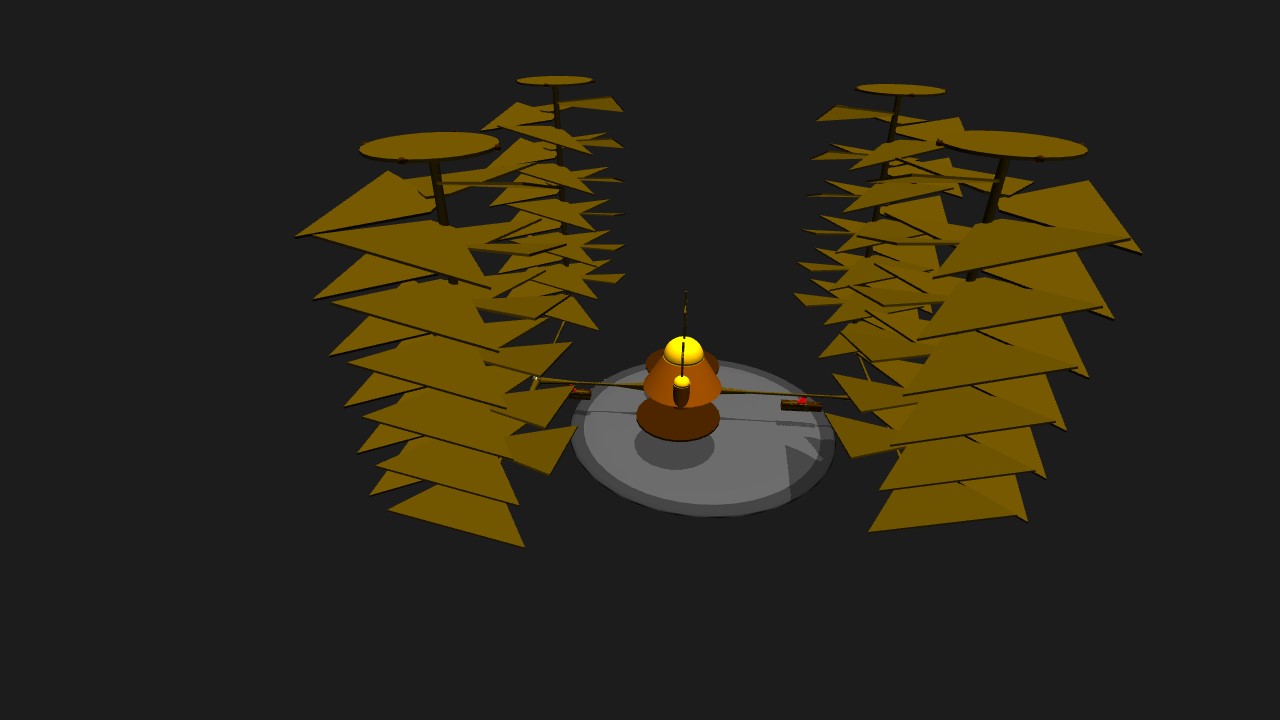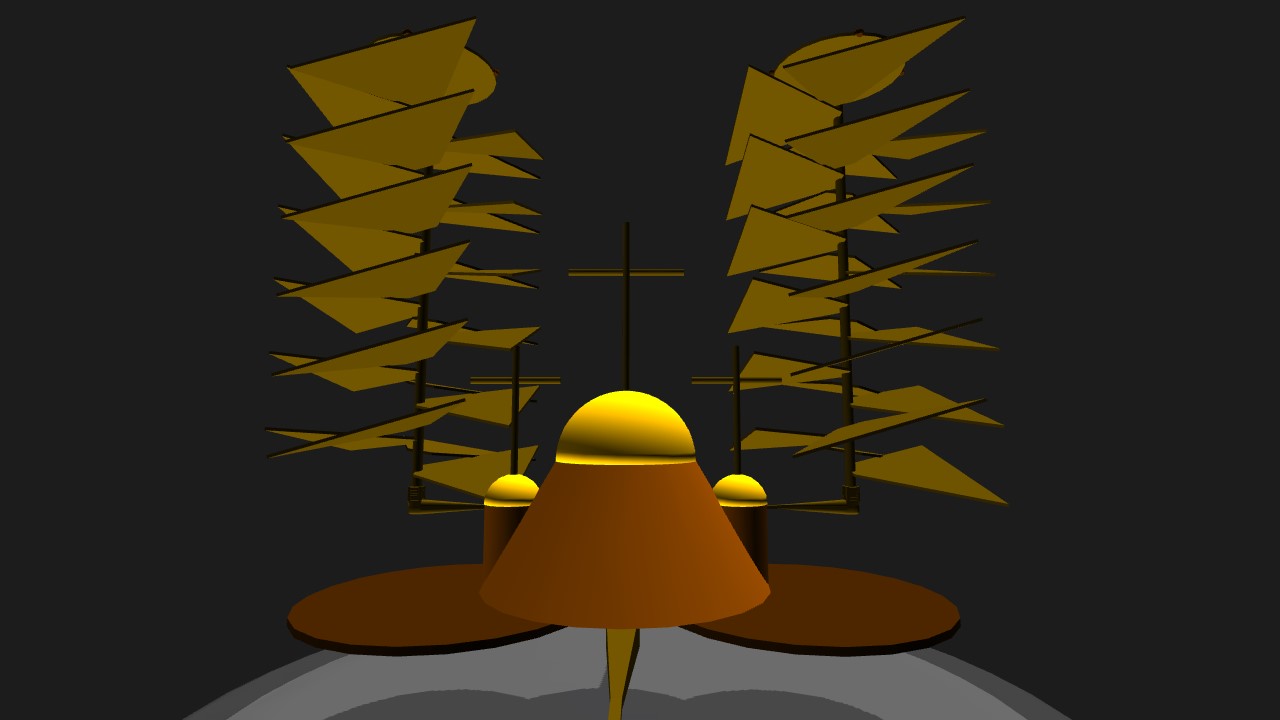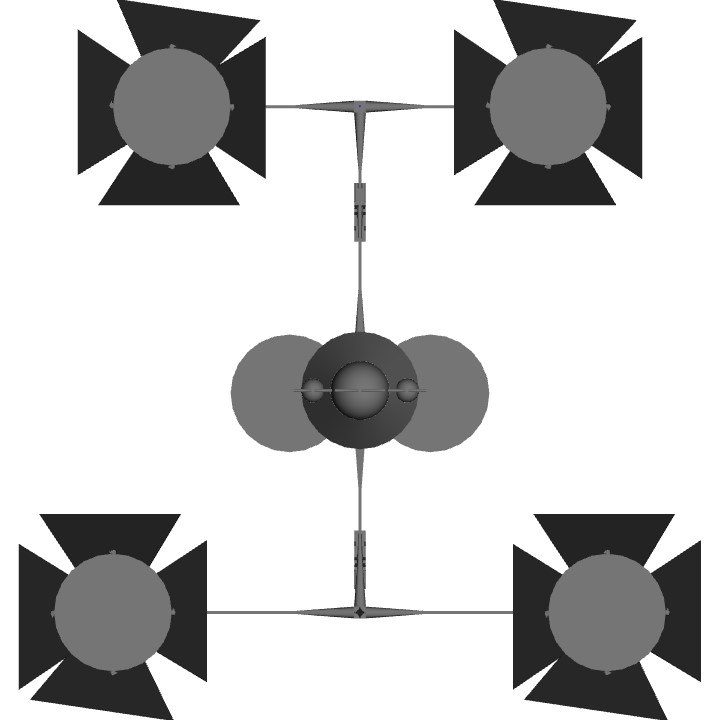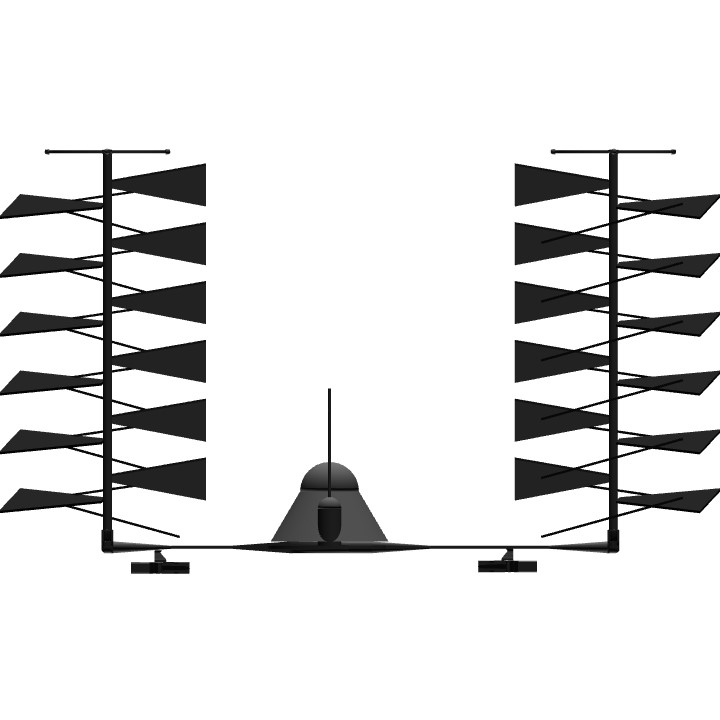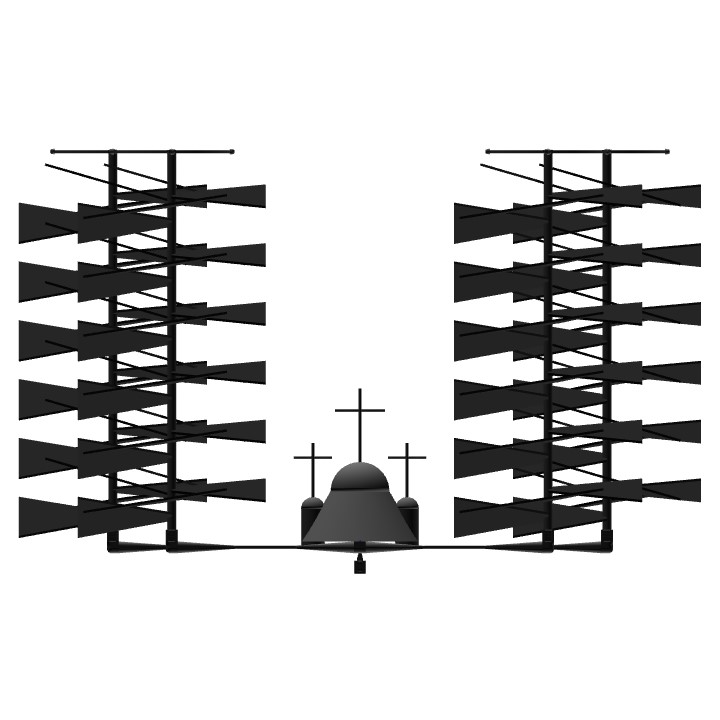Alternate History
To fly throttle to 100%,
- release engines by activating group 1
- to turn use vtol control to yaw left and right; up for right down for left
- Pitch and roll control operate as usual
The following account has recently come to light from the dark, secret, and forgotten corners of the Vatican.
The Year of our Lord 1514, His Holiness Pope Leo X has decided to undertake a pilgrimage to Jerusalem as a penance. Having become acquainted with the works of Leonardo DaVinci, especially intrigued by his drawings of flying machines, he along with a conclave of loyal cardinals has charged DaVinci to build a flying machine capable of bringing the Pope, a few cardinals, and a contingent of monks and nuns to Jerusalem by air. They could then hover over the sacred sites and perform the correct rites. The pilgrimage attempted on foot would be fraught with every peril not to mention the politics involved by dealing with the Ottomans that had just acquired Jerusalem. He was aware of the failings of DaVinci's screw like flying machine, but is convinced a solution can be found with the right amount of investment of both time and money. The project, the Pope figured could easily be financed by increasing the sales of Indulgences. After all, why should the pope not fly instead of walk. He reasoned "God has given us the papacy, let us enjoy it". DaVinci accepted the challenge. He solved the problem of lift off by significantly adding to the height of the Screw (rotor). He figured turning the machine into a quadcopter would increase the control and stability of the machine. The main body, as per the request of the Pope was designed as a miniature Cathedral. The Cathedral housed all the passengers as well as the indentured crew required to power the machine.The screws were turned via a network of shaft and gears that started from the main body that housed the main shaft. The main shaft had a giant gear to which cranks were connected like the spoke of a wheel. Each crank was turned by a number of men in a line seated on benches to the beat of a drum similar to the setup of a Roman galley. The top of each screw was equipped with a flywheel so that only a minimum amount of effort was needed to keep the rotor spinning, after the massive amount of force needed for the initial startup.
The year that the machine was finished is lost to history. Some fragments have survived of written records that describe the shock of the populace that witnessed the floating Cathedral on its pilgrimage. It was thought of as a miracle. It was generally agreed that the machine was as much kept aloft by the liturgy, chanting and praying of the saintly monks and nuns on the journey, as by the turning rotors.
Specifications
General Characteristics
- Predecessor DaVinci RotoCopter
- Created On iOS
- Wingspan 94.9ft (28.9m)
- Length 100.4ft (30.6m)
- Height 59.6ft (18.2m)
- Empty Weight 40,934lbs (18,567kg)
- Loaded Weight 73,615lbs (33,391kg)
Performance
- Power/Weight Ratio 0.366
- Wing Loading 4.9lbs/ft2 (24.0kg/m2)
- Wing Area 14,983.3ft2 (1,392.0m2)
- Drag Points 50380
Parts
- Number of Parts 208
- Control Surfaces 0
- Performance Cost 1,300

